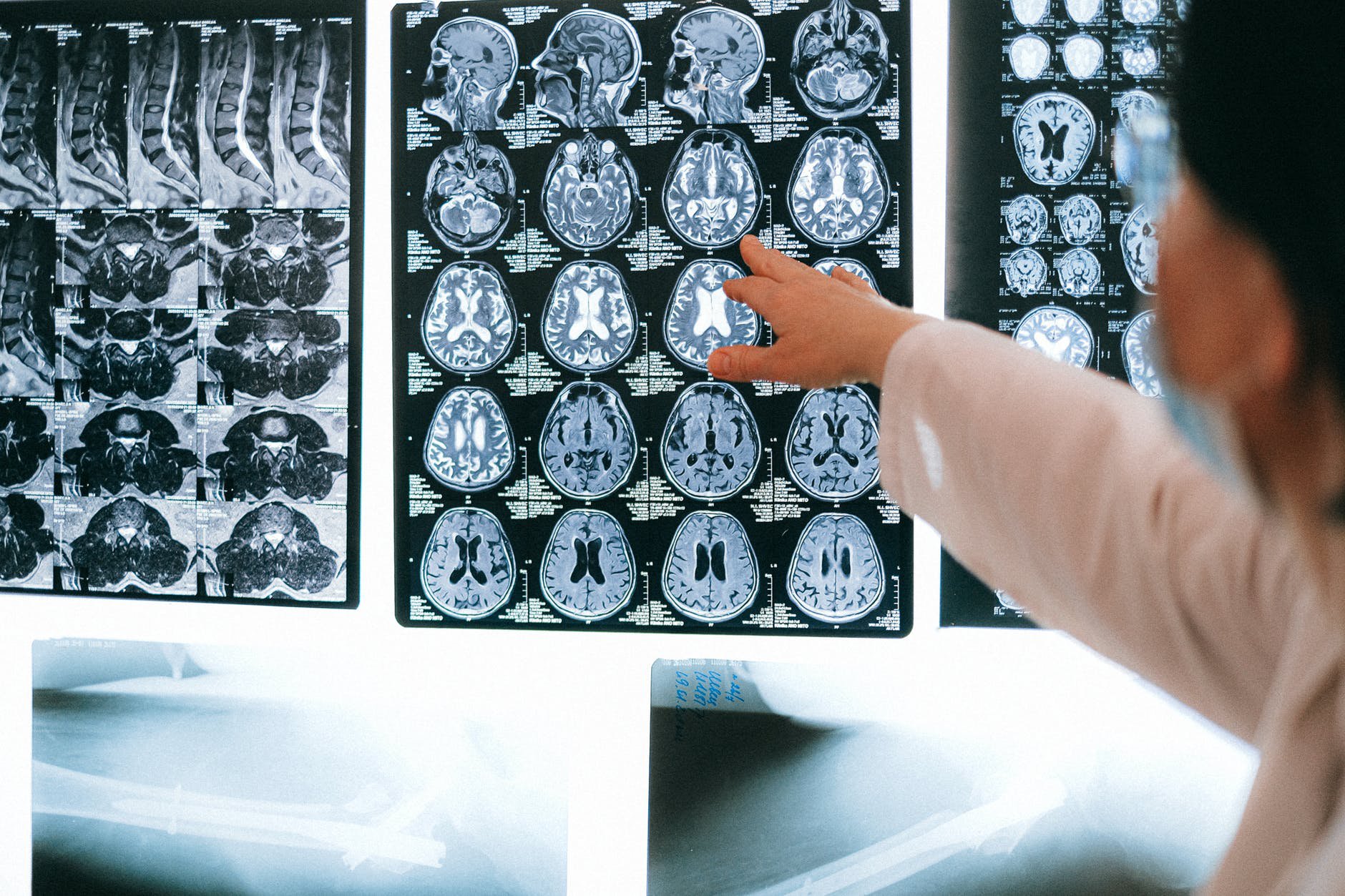Autonomy in Nursing: What It Is & Why It Matters

Registered Nurses play a central part in the delivery of care in all healthcare institutions. Out of all the healthcare professionals, they spend the most time caring for a patient. As a result, RNs get to know those in their care, their needs, and wants. They are in a suitable position to advocate for their patient’s needs and to make certain decisions that can improve the outcome of care.
Thus, it is essential for nurses to exercise autonomy. RNs are intelligent, courageous, passionate, and driven. Moreover, they have the critical thinking skills, the work ethic, the experience, and the knowledge to conduct nursing care with a certain level of autonomy. That’s why aspiring nurses value autonomy immensely.
In this article, we will explore all the subtleties of nursing autonomy – from definitions to examples and ways to enhance it. Knowing how and why autonomous practice for nurses can result in better patient outcomes and increased job satisfaction will lead to the overall transformation and betterment of care delivery.
What Is the Meaning of Autonomy in Nursing?
In simple terms, autonomy in nursing refers to the Registered Nurses’ ability to think critically and take actions related to a patient’s care. They do so by themselves, based on their knowledge and training, without requiring approval from physicians or other members of the healthcare team. Essentially, it is the idea that nurses should have control over their nursing practice and should be able to make decisions that fall within their scope of practice, training, and expertise.
A more comprehensive definition of nursing autonomy comes from the American Nurses Credentialing Center. In 1990, the ANCC introduced the Magnet Recognition Program. This much-coveted designation recognizes nursing excellence as well as the RNs’ potential to lead healthcare change. The Magnet recognition program is built upon the 14 Forces of Magnetism – principles which are to lead the way to the reformation of healthcare, nursing, and better outcomes for patient, family, and community.
The ninth Force of Magnetism is autonomy in nursing, which is described as the
“Ability of the nurse to assess and perform nursing actions for patient care based on competence, professional expertise, and knowledge.”
As part of their job, the RN should have the possibility to practice autonomously and exercise independent judgment. Providing patient care is an interdisciplinary and multidisciplinary endeavor, and nursing plays an essential role in it.
By including nurse autonomy as a condition of receiving Magnet status, the ANCC makes it abundantly clear how important it is for nurses to have control over their practice.
Research in the field has also pinned down two different types of autonomy in nursing. First, there’s clinical autonomy. This gives RNs the authority to make judgments about patient care. Second, control over nursing practice, the second kind of nurse autonomy, describes the nurses’ influence over their practice setting. This implies the nurses’ involvement in decision-making about organizational structure, rules, policies, and operations. Essentially, if something directly impacts nurses, they should have a say in it.
Achieving nurse autonomy is no simple feat. Resources, training, knowledge, and experience are key. Autonomous practice comes hand in hand with a great deal of responsibility, so nurses need to be up for the task.

What Are Some Examples of Autonomy in Nursing?
As part of their job, nurses collaborate extensively with doctors and other members of the healthcare team who write prescriptions, set care plans, and so on. While the physician is the professional with the highest level of autonomy is the health workplace, this doesn’t mean RNs completely lack it.
Even without prescriptive authority or medical diagnostic control, RNs have autonomy that extends within their scope of practice. A nurse’s education allows them to assess vital signs and patient symptoms. Determining if the patient has elevated blood pressure, if he’s hyperventilating or perspiring excessively – RNs are trained to make these assessments and act accordingly.
Sometimes without giving it too much credit, nurses make autonomous decisions. For example, when entering the patient’s room, the RN notices the patient is experiencing some breathing problems. Consequently, the RN listens to the patient’s lungs and decides if the best course of action is to reposition the patient to maximize chest excursion. Perhaps, they need some oxygen. Possibly there’s something wrong with the medication, so the RN checks that. Or suppose, the nurse is worried about the patient’s hydration levels, so they decide to measure fluid input and output.
Further, the nurse educates the patient. They inform them about the consequences of fluid buildup, of the risks of excessive salt intake. They mention what position will make it easier for the patient to breathe, or what exercise is recommended.
Each of these assessments and subsequent decisions are examples of autonomous nursing practice. The RNs education and training allows them to independently make these decisions.
Some more examples of clinical autonomy in nursing include:
- Administering PRN medications
- Changing the position of the bed
- Checking vital signs when concerned about the patient’s state
- Delegating tasks to LPNs or CNAs
- Making decisions in emergency health situations, i.e. providing CPR
- Interpreting certain medical results and providing specific medical diagnostics
- Managing particular equipment or healthcare technologies such as smart beds or wearable devices
Nurse autonomy extends to control over their practice. That manifests itself as:
- Participating in decision-making processes related to their practice, especially when it comes to policy and operations. For instance, if certain procedures change, the nursing staff should provide input.
- Increased control over their daily duties and work conditions. For example, introducing a full-time working hours selection system; flexibility in choosing length and frequency of night shifts, flexible selection of vacation days.
- Providing improvement ideas for some organizational aspects of the practice. For example, if the supply room isn’t stocked accordingly, the nurse can bring it up to the supervisors.
All these examples show the significant role of nurse autonomy in healthcare delivery. A nurse’s critical thinking, assessments, and interventions matter and can be the difference between life and death.

What Are the Benefits of Nurse Autonomy?
Let’s explore further how exactly autonomy in nursing benefits everyone, from nurses to their patients. Why is autonomy so important?
First and foremost, nurse autonomy has a positive impact on quality of care and patient outcomes. A 2017 study found that hospitals in which RNs experienced higher levels of nurse autonomy have reduced 30-day mortality rates and fewer failure-to-rescue rates. Capitalizing on nursing expertise and giving experienced nurses autonomy was also associated with better results in neonatal critical care units.
Just as importantly, nursing autonomy has long been recognized as a major source of nursing satisfaction. There’s no shortage of studies linking greater professional autonomy to increased job satisfaction. When Registered Nurses have the authority to use their professional knowledge and judgment to make decisions and take action, they will feel more confident, respected, and appreciated at their workplace. The feeling of professional satisfaction will have subsequent benefits for the nurses’ practice. As a result of it, the interdisciplinary collaboration and relationships with other members of the healthcare team are improved. Enhanced job satisfaction leads to improved quality of nursing performance. Also, nurses who are satisfied with their job are at a much lower risk of burnout.
Increased job satisfaction means lower turnover rates, more competent care, and improved patient results. Hence, entrusting nurses and giving them respect and decision-making ability will have a ripple effect throughout the entire organization.
Lack of Autonomy: What Are The Dangers?
What happens when as a nurse you don’t have autonomy in your workplace?
Reduced autonomy or lack thereof has a negative impact on Registered Nurses, patients, the healthcare team and the entire health institution. Autonomous decision-making is the hallmark of any profession. Nursing is no exception. Low levels of nurse autonomy within an organization will have the following repercussions:
- Higher levels of moral distress among nurses
- Lower levels of nurse-physician collaboration
- Lack of motivation of the RN side
- Predisposition to physical illnesses
- Depersonalization
- Personal and professional depreciation
- Burnout
- Poorer outcomes and lower quality of care.

How to Enhance Nurse Autonomy?
The level of autonomy a nurse has is directly proportional to their education and skill level. More experienced nurses are more likely to enjoy more autonomy in their practice. Likewise, enhanced competencies will lead to enhanced autonomy. So, here are some of the most effective ways to get more autonomy as a nurse:
- Advance your nursing education
Generally, the more educated a nurse is, the higher their level of expertise, and consequently, the more autonomy they will enjoy in their practice. This was corroborated by a 2018 study that found nursing education to be a predictor of professional autonomy in nurses.
Nursing education prepares future RNs by strengthening their concept of nursing autonomy and professionalism. If nurses take action to advance their education and knowledge, they will naturally increase their ability to make independent decisions about their clinical practice. Advanced Practice Registered Nurses with a Master’s degree or above are known to have the most control over their practice.
- Pursue certification
Knowledge and confidence are pivotal factors to autonomous practice. Seeking specialty certification is a great way for Registered Nurses to advance their knowledge and to enhance their nursing abilities, skills, and qualifications. Certification testifies to a culture of excellence, helping nurses become more empowered and boosting their confidence. Certified nurses demonstrate higher levels of professionalism and improved interdepartmental collaboration. They tend to be highly respected in their field. So, naturally, nurses who earn certifications benefit from boosted autonomy in practice.
- Establish strong relationships with your patients
One study found that when nurses establish a relationship with their patients, they will be able to better understand the patient’s situation, needs and wants. Consequently, they’re in a better position to advocate for their patients and to provide holistic care. Acting autonomously closely follows suit.
- Participate in a professional nursing organization
Another step you can take to achieve more autonomy in the workplace is to take part in professional nursing organizations. Being a member of a local, regional, or national nursing organization comes with a fair share of benefits. They may offer mentorship programs, discounts on attending nursing conferences, nursing journal subscriptions, and more. Having access to these tools is an excellent way to develop your professional skills and competencies. As a result, you’ll become a better nurse with a great deal of autonomy.
- Attend nursing conferences
Nursing conferences and healthcare forums can be part of a nurse’s continuing education. These events will expand your knowledge while also strengthening your professional identity.
Plus, engaging in lifelong learning and pursuing continuing education is a variable linked to higher degrees of autonomy.
Advocating for more autonomy in nursing is also up to healthcare employers and Nurse Managers. NMs can help the nurses’ pursuit of autonomous decision-making by building their confidence and providing them with professional growth opportunities. Also, their position of authority permits them to examine institution policies that contribute to nurse autonomy. They can also reinforce effective communication and collaboration with all members of the healthcare team.

What Are the Nursing Jobs With The Highest Level of Autonomy?
Some nursing roles grant more autonomy than others. Here are some of the jobs which allow you the more control over your practice:
- Nurse Practitioners. This is definitely one of the roles with the highest degree of autonomy in nursing. NPs are an Advanced Practice Registered Nurse, so, they need at least a Master’s Degree in Nursing in order to start their practice. Nurse Practitioners have prescriptive authority in all 50 states and can opt for fully independent practice in most states. They can choose to specialize in a specific area of nursing, such as Mental Health, Gerontology, or Family practitioner.
- Nurse Midwives. With Master’s level training in midwifery, Nurse Midwives are another Advanced Practice role that enjoys a great deal of autonomy. They are highly trained medical professionals who guide women through pregnancy, childbirth, and beyond. Their scope of practice might vary depending on location, but in most states Certified Nurse Midwives have authority to practice independently or through a collaborative practice agreement with a physician.
- Nurse Anesthetists. CRNAs are advanced practice nurses and subsequently, they practice with a high degree of autonomy. Their extensive education and certification process qualifies them to make independent judgements related to all aspects of anesthesia care.
- Home Health Nurses. In home health, the Registered Nurse taking care of the patient is often the only medical professional in physical proximity. Hence, autonomy in this context is a direct result of the environment. Home Health Nurses can perform their duties freely, without having a supervisor scrutinizing their every move or decision. Home health is a less stressful nursing alternative.
- Telehealth Nurses also enjoy more autonomy in their nursing practice. Their duties revolve around providing assistance and care to patients over virtual healthcare platforms. In this line of work, it’s imperative for Telehealth nurses to use their judgement when assessing a situation and making decisions accordingly. They can help the patient over phone or video; they can schedule an appointment with a physician or call an ambulance if the situation requires it. Autonomy is needed for the RN to decide on the spot what the best course of action is.

Final thoughts
Professional autonomy is key to successful nursing practice. Whether you refer to it as self-determination, self-governance, self-direction, or independence, it is clear that giving the nurses the ability to make decisions within their scope of practice is highly beneficial. It improves patient experiences and outcomes. Nurses enjoy more job satisfaction and that reflects on their work performance and well-being.
Autonomy and accountability go hand in hand. Nurses who wish to be more autonomous in their work must take responsibility for all the decisions they make and actions that follow. Thus, to responsibly assume control over their nursing practice, Registered Nurses should continually improve their skills and knowledge.
Advancing your education is an excellent way to do just that. With a higher degree comes more autonomy in your nursing practice.
Enroll in our RN-to-BSN program and pave the way for a more autonomous nursing career.

